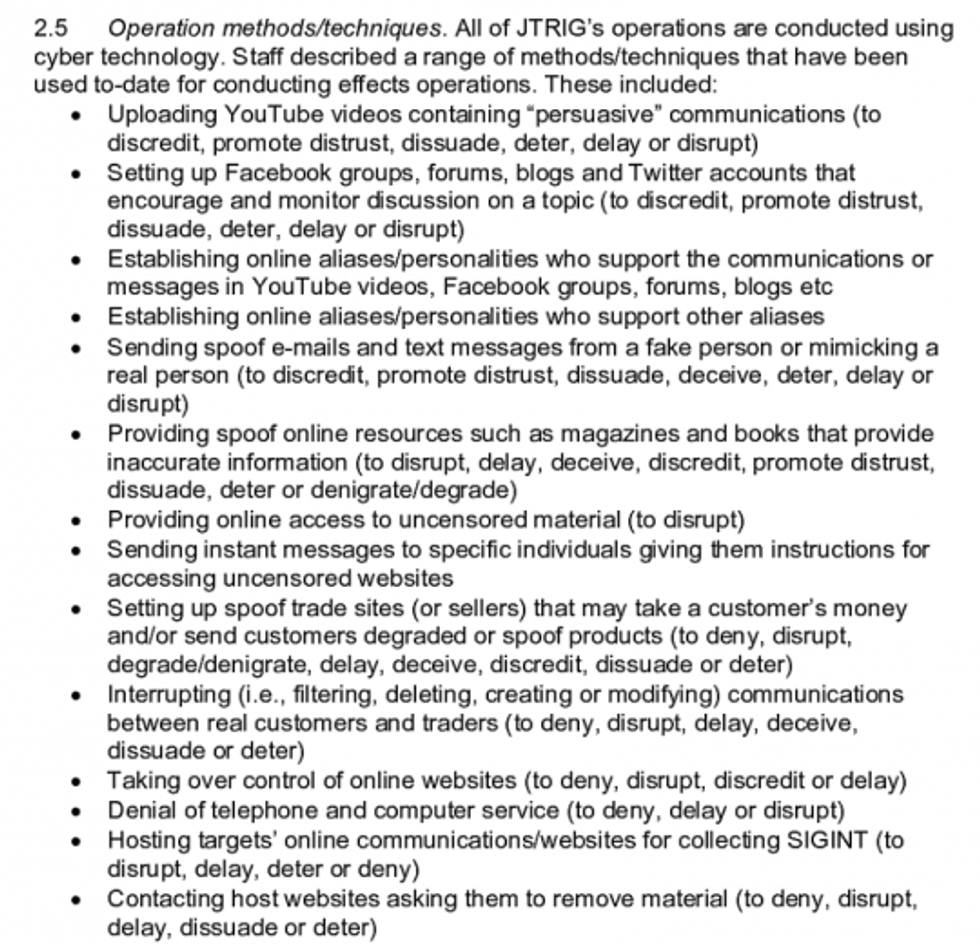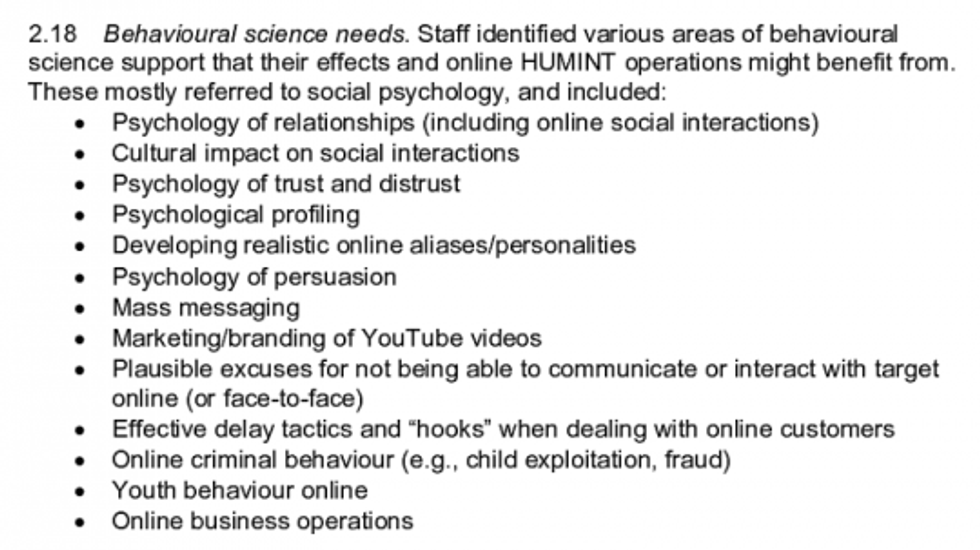With never-before-seen documents accompanied by new reporting on Monday, The Intercept's Glenn Greenwald and Andrew Fishman are offering a more in-depth look than ever into how a secretive unit of the UK's GCHQ surveillance agency used a host of psychological methods and online subterfuge to manipulate the behavior of individuals and groups through the internet and other digital forms of communication.
According to the reporting, the latest documents, which were leaked to journalists by NSA whistleblower Edward Snowden,
demonstrate how the Joint Threat Research Intelligence Group (JTRIG), a unit of the signals intelligence agency Government Communications Headquarters (GCHQ), is involved in efforts against political groups it considers "extremist," Islamist activity in schools, the drug trade, online fraud, and financial scams.
Though its existence was secret until last year, JTRIG quickly developed a distinctive profile in the public understanding after documents from NSA whistleblower Edward Snowden revealed that the unit had engaged in "dirty tricks" like deploying sexual "honey traps" designed to discredit targets, launching denial-of-service attacks to shut down internet chat rooms, pushing veiled propaganda onto social networks, and generally warping discourse online.
Among the most troubling revelations is a 42-page internal JTRIG memo that describes in detail how the elite unit developed, maintained, and apparently sought to expand its "scientific and psychological research into how human thinking and behavior can be influenced" in order to increase its ability to "manipulate public opinion" via online tools like email, social media, video, discussion forums, and other platforms.
Greenwald and Fishman argue JTRIG's self-documented exploits are most notable because of their "extensive use of propaganda methods and other online tactics of deceit and manipulation" that are not only reserved for "suspected foreign enemies" or criminals, as the agency continues to claim, but have also been used against other groups and individuals that the agency deems threatening or "politically radical."
As Common Dreams reported in February of 2014--when the existence of JTRIG was first made public--the GCHQ has used the unit to develop and deploy a complex series of "dirty tricks," "propaganda," and "false flag" operations designed to spy on selected targets which included not only "suspected terrorists" and "criminals" but also diplomats, journalists, and activists.
Included in the new JTRIG memo is this detailed look at the manipulative online tactics developed by the group:
The reporting also highlights the internal memo's focus on "manipulation" and how the GCHQ hoped to foster both "conformity" and "obedience" among those targeted:
Read The Intercept's full reporting here. And links to the new published documents follow:
- Behavioural Science Support for JTRIG'S Effects and Online HUMINT Operations
- UK Ministry Stakeholder Relationships Spreadsheets (13 documents merged)



